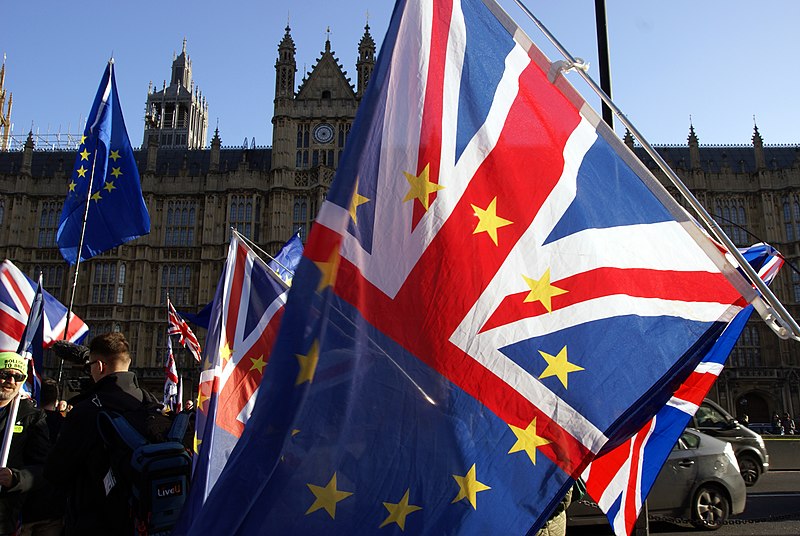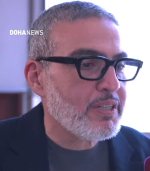UK News
-
 TfL’s five-year road plan wims to cut congestion, speed up buses and future-proof London’s streets
Transport for London (TfL) has unveiled an ambitious five-year strategy designed to tackle congestion, improve safety and modernise how London’s vast road network operates.Read More...
TfL’s five-year road plan wims to cut congestion, speed up buses and future-proof London’s streets
Transport for London (TfL) has unveiled an ambitious five-year strategy designed to tackle congestion, improve safety and modernise how London’s vast road network operates.Read More... -
UK banks unveil £11bn funding boost to help small businesses expand globallyUK lenders have announced a landmark £11 billion financing package designed to help British small and mid-sized businesses invest, grow and break into international markets.Read More...
-
 Major offshore wind farm off North Wales coast set to create jobs and boost economy
A major new offshore wind development in the Irish Sea is set to bring skilled jobs, investment and long-term economic growth to North Wales, according to the Welsh Secretary.Read More...
Major offshore wind farm off North Wales coast set to create jobs and boost economy
A major new offshore wind development in the Irish Sea is set to bring skilled jobs, investment and long-term economic growth to North Wales, according to the Welsh Secretary.Read More... -
 UK invests £14m in community ocean projects to cut poverty and protect marine life worldwide
The UK is stepping up its global push to protect the ocean while tackling poverty, announcing £14 million in new funding for community-led projects in some of the world’s mostRead More...
UK invests £14m in community ocean projects to cut poverty and protect marine life worldwide
The UK is stepping up its global push to protect the ocean while tackling poverty, announcing £14 million in new funding for community-led projects in some of the world’s mostRead More... -
 UK to launch ‘British FBI’ in biggest policing overhaul since 1829
The British government has announced plans to create a new National Police Service — widely described as a “British FBI” — in a sweeping reform aimed at modernising law enforcement andRead More...
UK to launch ‘British FBI’ in biggest policing overhaul since 1829
The British government has announced plans to create a new National Police Service — widely described as a “British FBI” — in a sweeping reform aimed at modernising law enforcement andRead More...

Culture
-
 Karen Newman appointed to sculpt Queen Elizabeth II for National Memorial in St James’s Park
Renowned British sculptor Karen Newman MRSS has been appointed to create a new sculpture of Queen Elizabeth II as part of the UK’s national memorial to the late Monarch, the QueenRead More...
Karen Newman appointed to sculpt Queen Elizabeth II for National Memorial in St James’s Park
Renowned British sculptor Karen Newman MRSS has been appointed to create a new sculpture of Queen Elizabeth II as part of the UK’s national memorial to the late Monarch, the QueenRead More... -
 UK government unveils £1.5bn culture investment to save 1,000 local venues and restore national pride
The government has announced a landmark £1.5 billion investment in arts, culture and heritage, pledging to safeguard more than 1,000 local venues across England and reverse years ofRead More...
UK government unveils £1.5bn culture investment to save 1,000 local venues and restore national pride
The government has announced a landmark £1.5 billion investment in arts, culture and heritage, pledging to safeguard more than 1,000 local venues across England and reverse years ofRead More... -
 Museum of Oxford reveals 2026 programme focused on community stories, talks and events
The Museum of Oxford has unveiled its 2026 programme, setting out a year of talks, tours and hands-on events that place local people and shared histories firmly centre stage. The newRead More...
Museum of Oxford reveals 2026 programme focused on community stories, talks and events
The Museum of Oxford has unveiled its 2026 programme, setting out a year of talks, tours and hands-on events that place local people and shared histories firmly centre stage. The newRead More... -
 £9m Claude Lorrain masterpiece faces possible export as UK scrambles to keep Baroque treasure
A Baroque landscape masterpiece valued at £9 million has been placed under a temporary export ban, giving UK institutions a final opportunity to keep the work in the country.Read More...
£9m Claude Lorrain masterpiece faces possible export as UK scrambles to keep Baroque treasure
A Baroque landscape masterpiece valued at £9 million has been placed under a temporary export ban, giving UK institutions a final opportunity to keep the work in the country.Read More... -
 Welsh towns invited to compete for first-ever UK Town of Culture title
Could a Welsh town become the very first UK Town of Culture? Communities across Wales are being invited to step into the national spotlight as the UK launches its inaugural Town of CultureRead More...
Welsh towns invited to compete for first-ever UK Town of Culture title
Could a Welsh town become the very first UK Town of Culture? Communities across Wales are being invited to step into the national spotlight as the UK launches its inaugural Town of CultureRead More... -
 In Bloom: How plants shaped Britain and the modern world
Plants surround us every day – in our gardens, our homes and even in our cups of tea – yet few of us stop to consider the extraordinary journeys they have taken to get here.Read More...
In Bloom: How plants shaped Britain and the modern world
Plants surround us every day – in our gardens, our homes and even in our cups of tea – yet few of us stop to consider the extraordinary journeys they have taken to get here.Read More... -
 UK launches first town of culture competition to revive local pride and boost economic growth
The government has officially launched the UK’s first-ever Town of Culture competition, marking a major new push to restore pride in communities and drive cultural-led economic growthRead More...
UK launches first town of culture competition to revive local pride and boost economic growth
The government has officially launched the UK’s first-ever Town of Culture competition, marking a major new push to restore pride in communities and drive cultural-led economic growthRead More... -
 Government announces academy trust inspections to strengthen school accountability
New academy trust inspections to boost transparency for parents and strengthen outcomes for childrenRead More...
Government announces academy trust inspections to strengthen school accountability
New academy trust inspections to boost transparency for parents and strengthen outcomes for childrenRead More... -
 Cumbrian animated flood film scoops international science award
A short animated film featuring a red squirrel from Cumbria has won an international education award, shining a global spotlight on how trees can help tackle floodingRead More...
Cumbrian animated flood film scoops international science award
A short animated film featuring a red squirrel from Cumbria has won an international education award, shining a global spotlight on how trees can help tackle floodingRead More... -
 Inside an immersive Guildhall Art Gallery exhibition inspired by the London Tube
The sensory world of the London Tube is brought vividly to life in a new immersive exhibition at Guildhall Art Gallery, uniting painter Jock McFadyen RA with musicianRead More...
Inside an immersive Guildhall Art Gallery exhibition inspired by the London Tube
The sensory world of the London Tube is brought vividly to life in a new immersive exhibition at Guildhall Art Gallery, uniting painter Jock McFadyen RA with musicianRead More... -
 Researchers uncover ‘lost geometric code’ embedded in Oxford and Britain’s historic buildings
Researchers say they have uncovered a long-forgotten geometric code woven into some of Britain’s most famous historic buildings, including landmarks in Oxford.Read More...
Researchers uncover ‘lost geometric code’ embedded in Oxford and Britain’s historic buildings
Researchers say they have uncovered a long-forgotten geometric code woven into some of Britain’s most famous historic buildings, including landmarks in Oxford.Read More... -
 IWM Duxford to open new Second World War rooms revealing unseen artefacts and daily life of wartime pilots
IWM Duxford is set to open three newly restored Second World War spaces, offering visitors an intimate look at the lives of aircrew stationed at the Cambridgeshire airfield during the conflict.Read More...
IWM Duxford to open new Second World War rooms revealing unseen artefacts and daily life of wartime pilots
IWM Duxford is set to open three newly restored Second World War spaces, offering visitors an intimate look at the lives of aircrew stationed at the Cambridgeshire airfield during the conflict.Read More... -
 War-torn Trafalgar Union Flag faces possible departure from UK
A rare Union Flag that led the British charge at the Battle of Trafalgar has been placed under an export bar, giving UK institutions the chance to keep the historic relic in the country.Read More...
War-torn Trafalgar Union Flag faces possible departure from UK
A rare Union Flag that led the British charge at the Battle of Trafalgar has been placed under an export bar, giving UK institutions the chance to keep the historic relic in the country.Read More...

British Queen celebrates
Most Read
- Teen held after US woman killed in London stabbings
- Heave-ho Harry! Prince prepares to join the walking wounded in ice trek to North Pole
- Football: Farhad Moshiri adamant Everton deal above board
- "Master of English Style". Interview with Designer Lydia Dart
- Letter to the Financial Times from Lord Mayor Alderman Michael Bear
World News

The Foreign Secretary visits Chile as the UK and Chile celebrate 200 years of bilateral consular relations.

The United Kingdom is set to impose a ban on Russian diamonds and imports of metals from Russia, including copper, aluminium, and nickel, as part of a fresh round

Potential victims of exploitation will be better protected under a new UK-Romania joint action plan on human trafficking, the government has announced.

Ambassador Neil Holland says following Russia's illegal annexation of Crimea in 2014, the Crimean Tatars have endured ruthless persecution at the hands of the Russian regime.

The country of Italy is grappling with the aftermath of severe flooding that has claimed the lives of nine individuals and forced around 13,000 people to evacuate their homes. The calamity was

The UK and Norway agree to develop a strategic partnership to counter shared threats in the undersea domain, including threats to our undersea infrastructure.

The UK will back President Biden’s drive to remove and store global carbon emissions as it forges ever-closer links with the United States on energy security.

The upcoming local council elections in Northern Ireland are taking center stage as the Democratic Unionist Party (DUP) seeks to leverage them to push for further

Defence Secretary Ben Wallace met with his counterpart Defence Minister Boris Pistorius in Berlin today, days after announcing that the UK will be the first nation to

The Prime Minister met European Commission President Ursula Von der Leyen at the Council of Europe Summit in Iceland today.





















